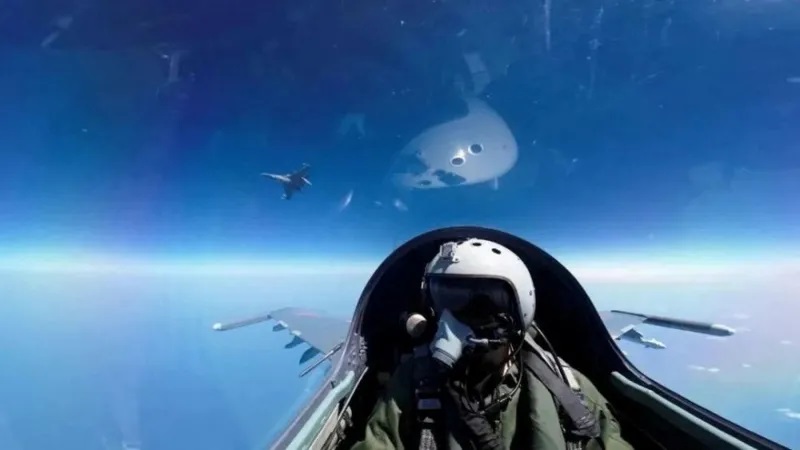
BEIJING, May 23, 2024 (BSS/AFP) - China on Thursday launched two days of
military drills to surround self-ruled Taiwan in what it said was "strong
punishment" for its "separatist acts".
The war games come after Lai Ching-te was sworn in as Taiwan's new president
this week and made an inauguration speech that China denounced as a
"confession of independence".
Communist China claims Taiwan as part of its territory and has vowed to bring
the island under its rule, by force if necessary.
Thursday and Friday's drills involve military aircraft and naval vessels
surrounding Taiwan to test their combat capabilities, China's People's
Liberation Army announced.
Taiwan responded quickly to China's announcement on Thursday morning, saying
it had deployed sea, air and ground forces to "defend freedom".
"The Ministry of National Defence strongly condemned such irrational
provocations and actions that undermine regional peace and stability," it
said.
China has previously branded Lai a "dangerous separatist" who would bring
"war and decline" to it.
On Tuesday, it warned of strong reprisals to Lai's inauguration speech, in
which he vowed to continue to build up Taiwan's defence capabilities.
"In face of the many threats and attempts of infiltration from China, we must
demonstrate our resolution to defend our nation," said Lai, 64.
- 'Kill independence' -
The drills, which began at 7:45 am (2345 GMT Wednesday), are taking place in
the Taiwan Strait and to the north, south and east of the island, PLA Eastern
Theater Command Naval Colonel Li Xi said.
They serve as a "strong punishment for the separatist acts of 'Taiwan
independence' forces and a stern warning against the interference and
provocation by external forces", Li said.
As the drills -- dubbed "Joint Sword-2024A" -- were launched, commentary on
state Chinese broadcaster CCTV declared them "a powerful disciplinary action"
against Taiwanese separatism.
China's military put out a series of posters touting what it called its
"cross-strait lethality". They featured rockets, jets and naval vessels next
to blood-stained text.
One showed rockets being fired at an island, while another showed tanks
emerging from the sea.
"The weapon aimed at 'Taiwan independence' to kill 'independence' is already
in place," it declared.
- 'Strong message' -
Beijing, which split with Taipei at the end of a civil war in 1949, regards
Taiwan as a renegade province with which it must eventually be reunified.
Relations have plunged in recent years as China has stepped up pressure on
it, periodically stoking worries about a potential invasion.
"(China) clearly feels it needs to send a very strong message to Lai and
anyone who supports him", analyst Bill Bishop wrote in his influential
Sinocism newsletter.
"I would be surprised if this new exercise is smaller and less threatening
than any last year," he said.
The last time China announced similar military exercises around Taiwan was in
August 2023 after Lai, then vice president, stopped over in the United States
on a visit to Paraguay.
Those drills also tested the PLA's ability "to seize control of air and sea
spaces" and fight "in real combat conditions", according to state media.
Beijing at the time described them as a "stern warning".
They followed April drills that simulated the encirclement of the island,
launched after Lai's predecessor Tsai Ing-wen met then-US House Speaker Kevin
McCarthy in California.
China also launched major military exercises in 2022 after Nancy Pelosi, then
the speaker of the US House of Representatives, visited Taiwan.
World powers are keen to see as much stability as possible between China and
Taiwan, not least because of the vital role it plays in the global economy.
The Taiwan Strait is one of the world's most important maritime trade
arteries. Taiwan itself is a major tech manufacturer, particularly of vital
semiconductors -- the tiny chips used in everything from smartphones to
missile systems.
The United States switched its diplomatic recognition from Taiwan to China in
1979 but remains its most important ally and supplier of military hardware.
US President Joe Biden has said he does not support Taiwan's independence but
also that he would back sending forces to defend Taiwan. The official US
position on intervention is one of ambiguity.